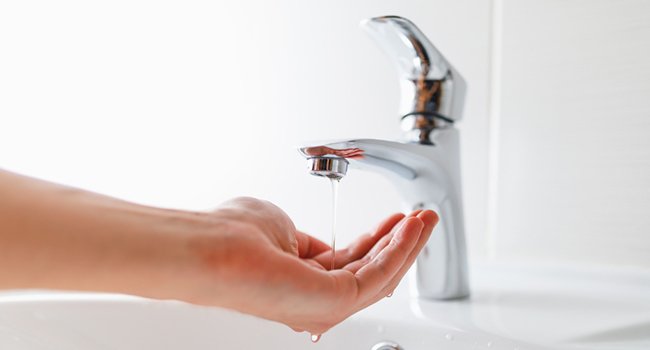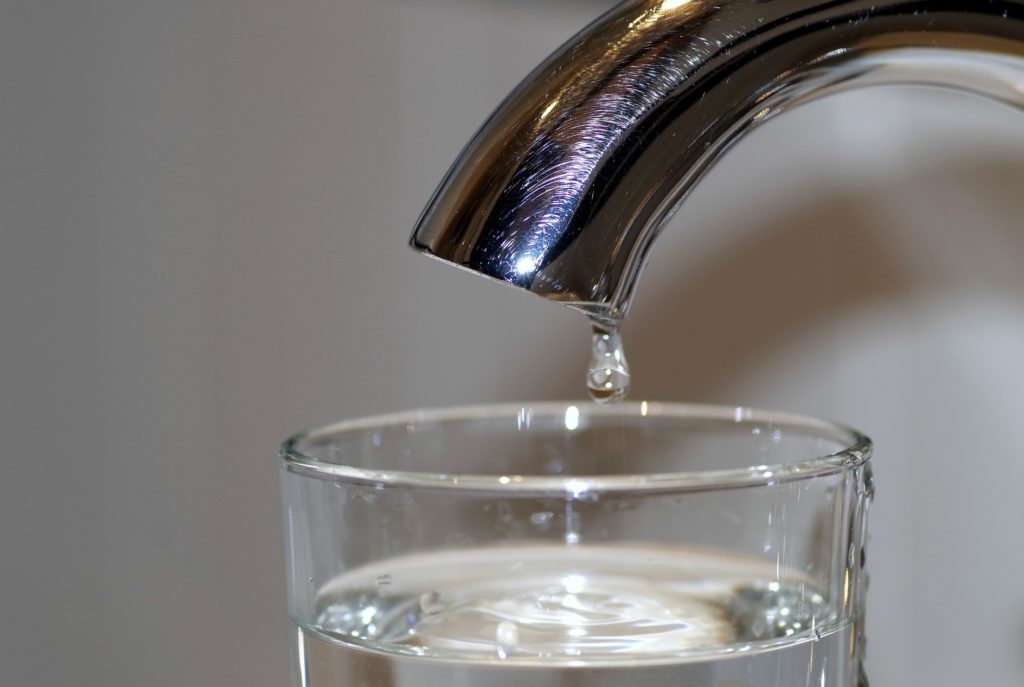Practical Methods for Dealing with Low Water Pressure in Your Home
Practical Methods for Dealing with Low Water Pressure in Your Home
Blog Article
They are making a number of great pointers about Low Water Pressure in the House? in general in this article beneath.

Low tide stress in your house can be an aggravating issue, impacting everything from bathing to cleaning recipes. If you're experiencing weak water circulation, there are several possible reasons and solutions to explore. In this overview, we'll go over usual factors for low water pressure and useful actions to resolve the problem successfully.
Introduction to Low Water Pressure
Low water stress takes place when the flow of water from your faucets, showers, and various other components is weak than typical. This can make daily jobs extra challenging and less reliable. Comprehending the sources of low water pressure is crucial to finding the best remedy.
Usual Reasons For Low Water Stress
Pipeline Obstructions
Over time, pipelines can come to be obstructed with mineral deposits, sediment, or debris, restricting the circulation of water. This is an usual concern in older homes with galvanized steel pipes.
Rust
Corrosion within pipes can cause leaks and minimized water stress. Corrosion build-up can tighten water circulation, especially in maturing plumbing systems.
Faulty Stress Regulatory Authorities
Pressure regulators are in charge of preserving constant water pressure in your home. If they malfunction, it can lead to low tide pressure or irregular circulation throughout the house.
Municipal Supply Of Water Issues
Occasionally, the issue exists outside your home. Metropolitan supply of water concerns, such as main line leaks or maintenance work, can temporarily decrease water pressure in your location.
How to Diagnose Low Tide Pressure
Checking Faucets and Fixtures
Begin by checking the water pressure at various faucets and fixtures throughout your home. If the concern is isolated to particular locations, it may show local issues.
Examining Pipes
Examine noticeable pipelines for indications of leakages, rust, or blockages. Take notice of any type of uncommon noises, such as knocking or rattling pipes, which can indicate problems within the plumbing system.
Consulting with a Plumber
If you're incapable to pinpoint the source of low water stress, take into consideration employing a specialist plumber to conduct a complete examination. They can determine underlying problems and advise proper solutions.
Do It Yourself Solutions to Deal With Low Tide Pressure
Cleaning Up Aerators and Showerheads
Natural resources can collect in aerators and showerheads, decreasing water circulation. Remove and clean up these parts routinely to improve water stress.
Flushing Hot Water Heater
Debris buildup in the hot water heater can restrict flow and reduce effectiveness. Purging the storage tank regularly aids eliminate debris and maintain optimal efficiency.
Checking Stress Regulatory Authority
Make certain that the stress regulatory authority is working properly. Adjusting or changing the regulator can aid recover appropriate water stress throughout your home.
Clearing Clogs in Piping
For minor clogs, try using a plumbing serpent or chemical drainpipe cleaner to clear obstructions in pipelines. Be cautious when utilizing chemicals and follow safety and security guidelines.
When to Call an Expert Plumber
If DIY initiatives fail to settle the concern or if you presume significant plumbing problems, it's ideal to look for aid from a qualified plumber. They have the knowledge and tools to address complicated issues safely and efficiently.
Preventive Measures to Preserve Water Stress
Normal Maintenance
Schedule regular upkeep for your plumbing system to prevent issues such as deterioration, leaks, and clogs. Dealing with small problems early can aid stay clear of more considerable fixings in the future.
Mounting a Pressure Booster
Consider mounting a pressure booster pump to boost water pressure in areas with constantly reduced circulation. This can be particularly valuable for multi-story homes or buildings with high-demand components.
Surveillance Water Use
Be mindful of water use behaviors and avoid overtaxing the plumbing system. Easy adjustments, such as shocking showers and laundry tons, can assist preserve ample water pressure.
Verdict
Handling low tide pressure can be discouraging, however determining the underlying causes and carrying out suitable solutions can restore ideal circulation throughout your home. Whether it's cleaning up aerators, inspecting pipes, or talking to a plumber, taking proactive steps can make certain a stable supply of water for your everyday demands.
How to Fix Low Water Pressure In Your Home
Municipal Water Supply Issues
Scheduled maintenance, high demand, and water main breaks are all potential causes for low water pressure within a city or county’s water lines. While there’s not much you can do to personally fix a problem with your city or county’s water supply system, you can play a big role in documenting the issue and alerting those who can.
How to fix it:
Ask your neighbors if they are experiencing any issues with low water pressure. If multiple homes are affected, it’s likely related to the city’s water line.
Contact the local Water Authority to see if there is any maintenance taking place that might be affecting your supply. Also let them know of your specific issues. If other homeowners report the same issues, they’ll know that there could be a larger issue to look into.
Faulty Fixtures
A damaged or clogged shower head, faucet or appliance is the first thing we’d suggest checking, especially if low water pressure appears to be isolated to a specific area of your home.
How to fix it:
First, turn off the main water supply to your home.
Check the affected appliances for build-up or debris. In the case of a faucet, you can simply unscrew the aerator at the tip of the faucet. Showerheads should be fully detached from the water pipe.
While the appliances are detached, you may want to check the water supply to determine if the fixtures were in fact the issue.
To clean, soak the showerhead or aerator in vinegar and brush off any visible debris.
Reattach the fixtures and check the water pressure again. If it is still low, there is likely a deeper issue at hand, which can be determined by a professional plumber.
Pipe Obstructions
Mineral deposits, rust or other debris within water pipes can lead to blockages or corrosion over time.
How to fix it:
When you think of a clog, you probably think of a drain clog. While there are many DIY solutions to clearing a drain, clogs in a water pipe will almost always require the help of a professional plumber. A plumber will be able to locate the affected pipe and clean out any debris or mineral deposit buildup. In severe cases, the pipe may need to be replaced. Your plumber might also recommend a water softening system to remove the minerals from your home’s water supply that can contribute to pipe blockages over time.
Plumbing Leak
Undetected water line leaks can divert water away from your residential pipes, reducing the water pressure in your fixtures.
How to fix it:
Check your water meter by turning off all water sources and monitoring the meter for any movement, which could be a clear indicator of a potential leak.
Check all visible pipes for signs of leaking, including water stains, active dripping or damp spots around the pipe.
Inspect fixtures, including faucets and showerheads, for any drips.
Test the pressure but recording the pressure with the main water valve shut off. Leave off for a few hours and test again. A significant drop in pressure is a clear sign of a leak.
https://kiddcoplumbing.com/plumbing-blog/how-to-fix-low-water-pressure/

How to Fix Low Water Pressure In Your Home
Municipal Water Supply Issues
Scheduled maintenance, high demand, and water main breaks are all potential causes for low water pressure within a city or county’s water lines. While there’s not much you can do to personally fix a problem with your city or county’s water supply system, you can play a big role in documenting the issue and alerting those who can.
How to fix it:
Faulty Fixtures
A damaged or clogged shower head, faucet or appliance is the first thing we’d suggest checking, especially if low water pressure appears to be isolated to a specific area of your home.
How to fix it:
Pipe Obstructions
Mineral deposits, rust or other debris within water pipes can lead to blockages or corrosion over time.
How to fix it:
When you think of a clog, you probably think of a drain clog. While there are many DIY solutions to clearing a drain, clogs in a water pipe will almost always require the help of a professional plumber. A plumber will be able to locate the affected pipe and clean out any debris or mineral deposit buildup. In severe cases, the pipe may need to be replaced. Your plumber might also recommend a water softening system to remove the minerals from your home’s water supply that can contribute to pipe blockages over time.
Plumbing Leak
Undetected water line leaks can divert water away from your residential pipes, reducing the water pressure in your fixtures.
How to fix it:
https://kiddcoplumbing.com/plumbing-blog/how-to-fix-low-water-pressure/
As a reader on Low Water Pressure in the House?, I assumed sharing that excerpt was worth the trouble. Appreciated our posting? Please quickly share it. Help other people check it out. Thank you for going through it.
Rates Report this page